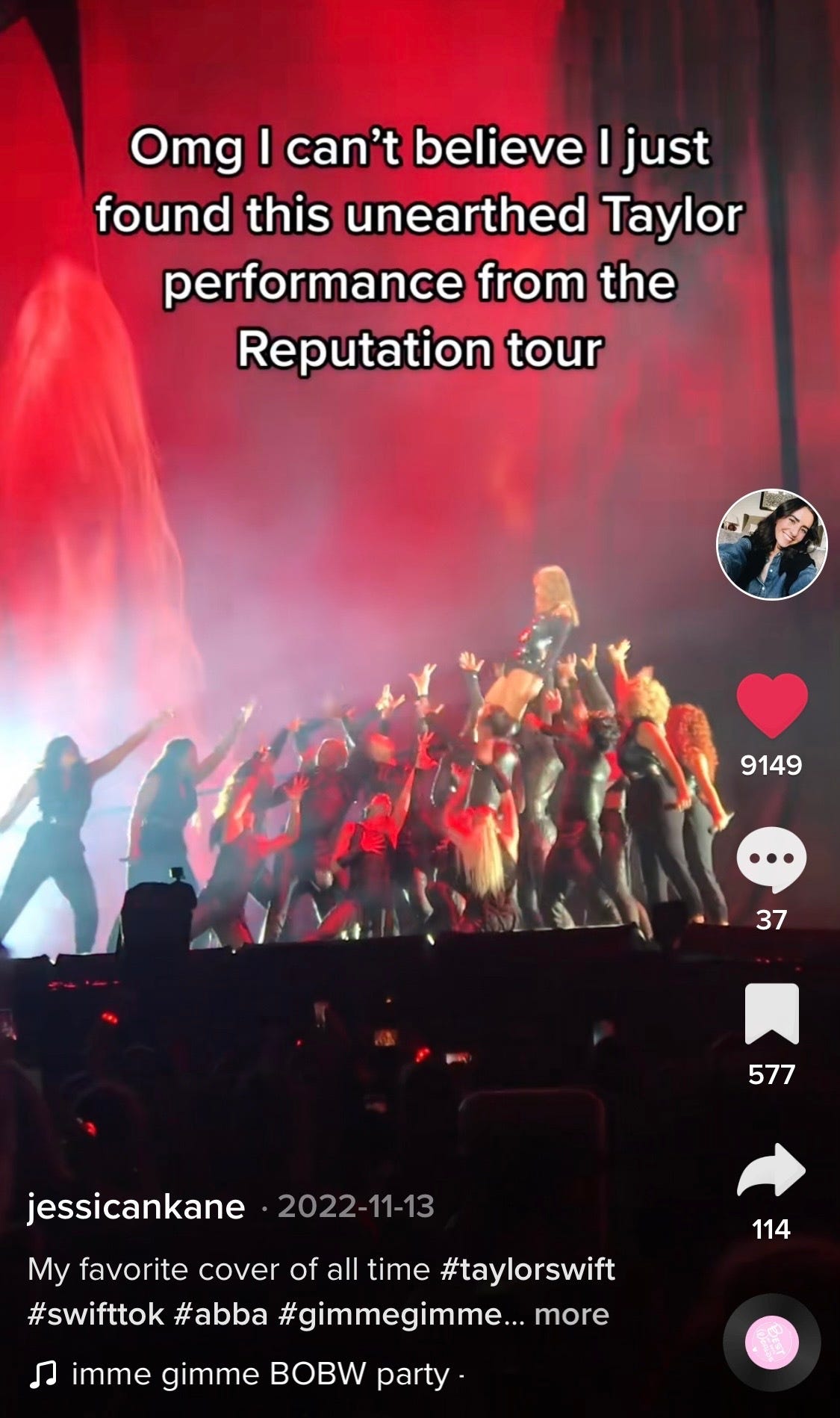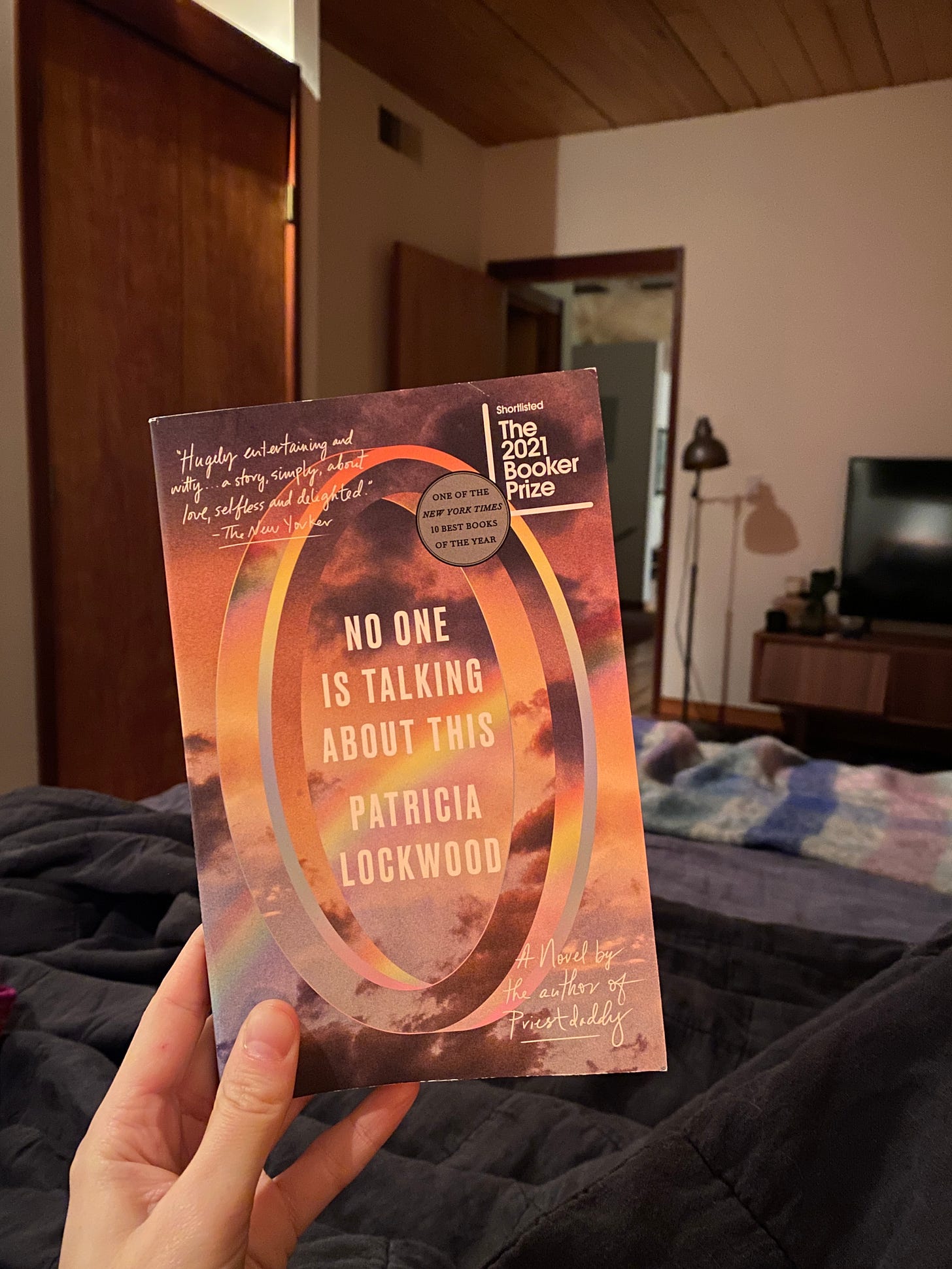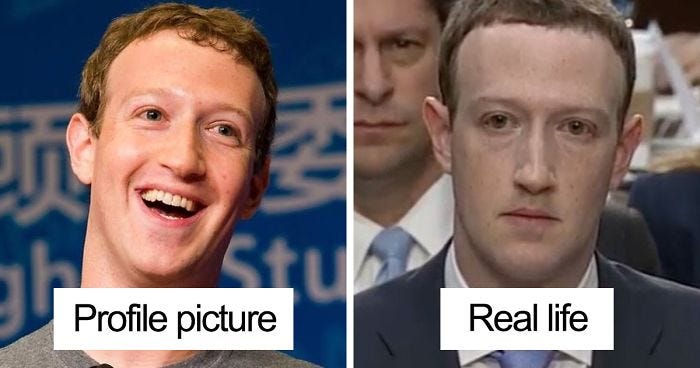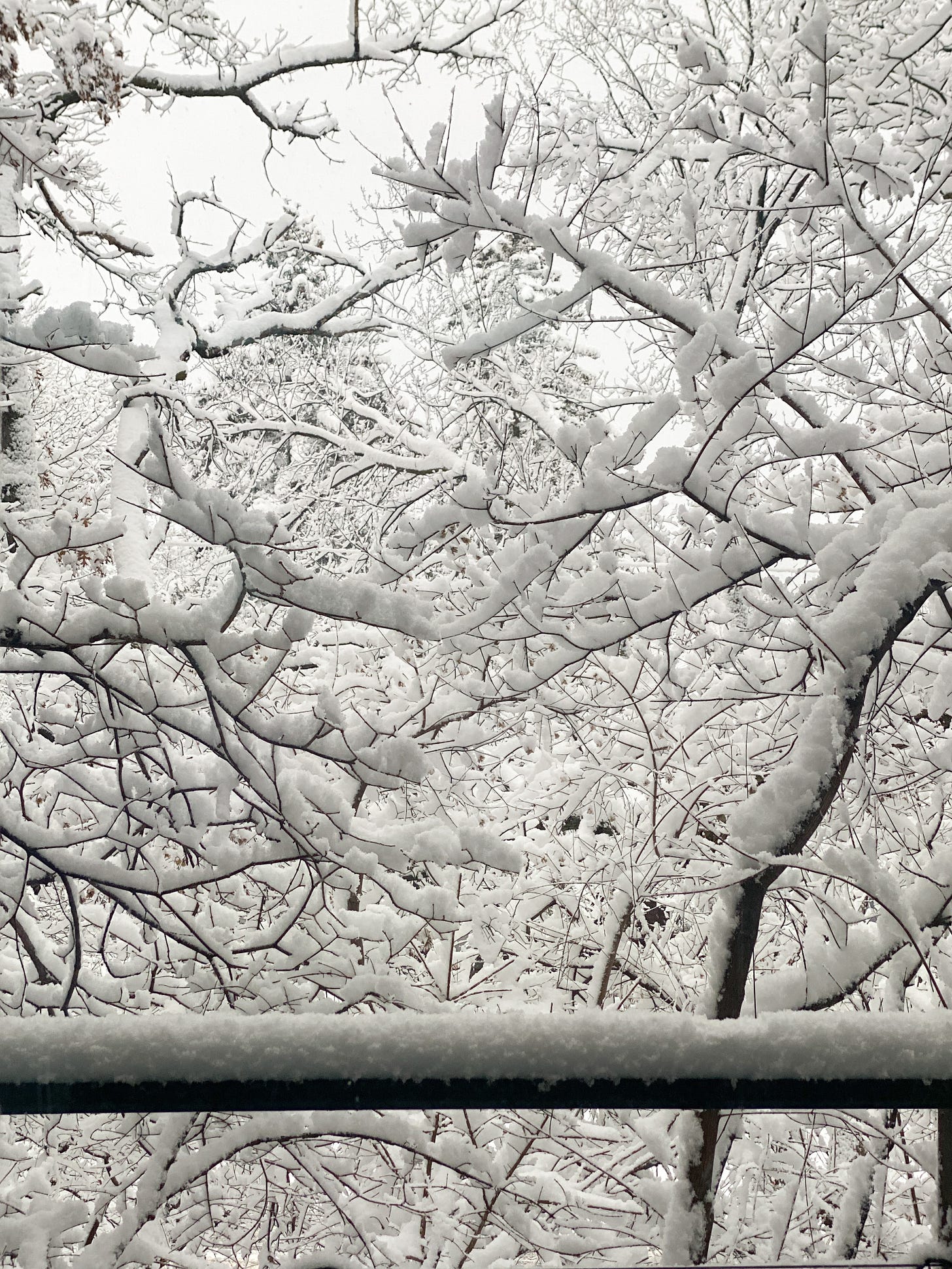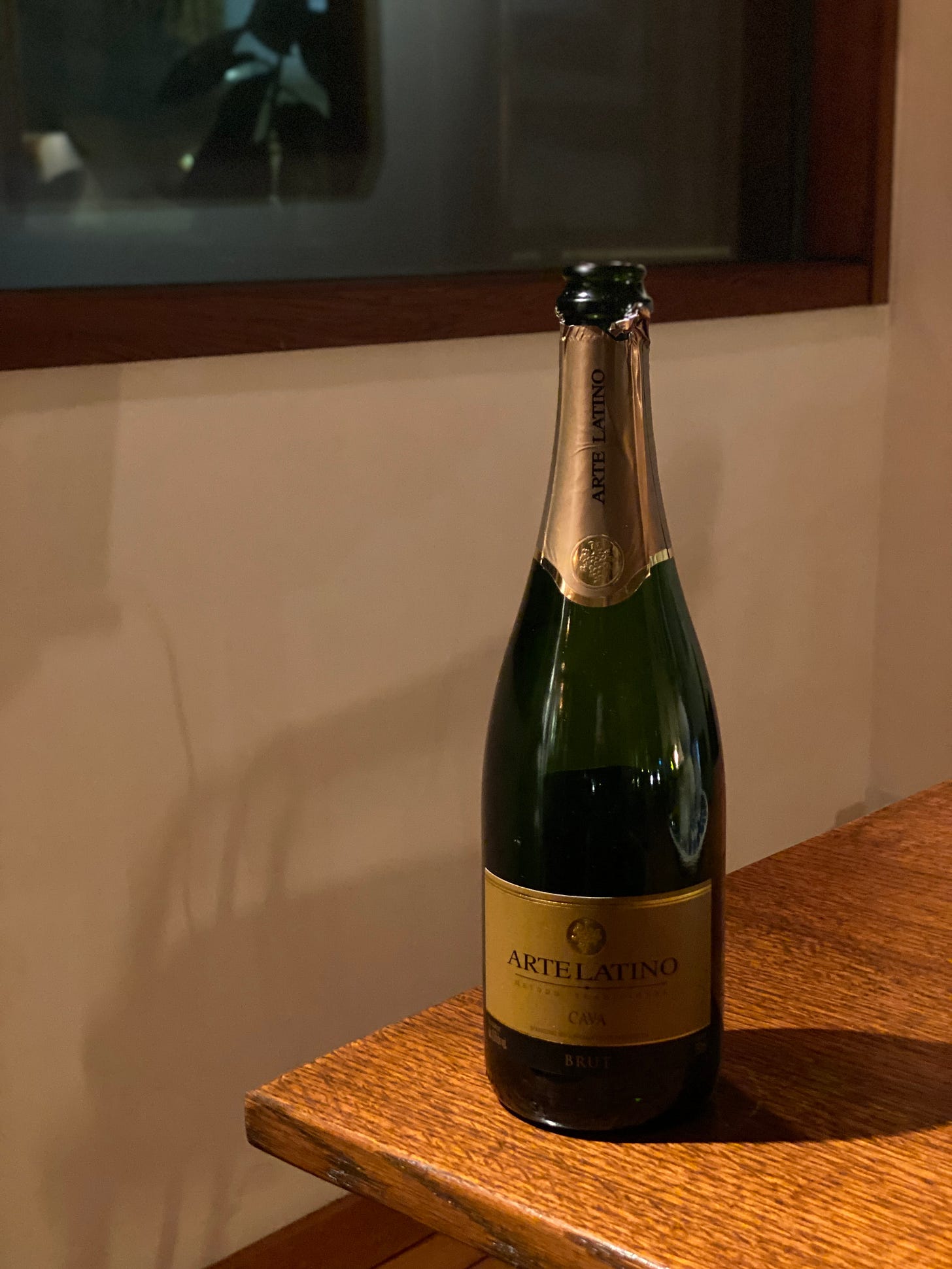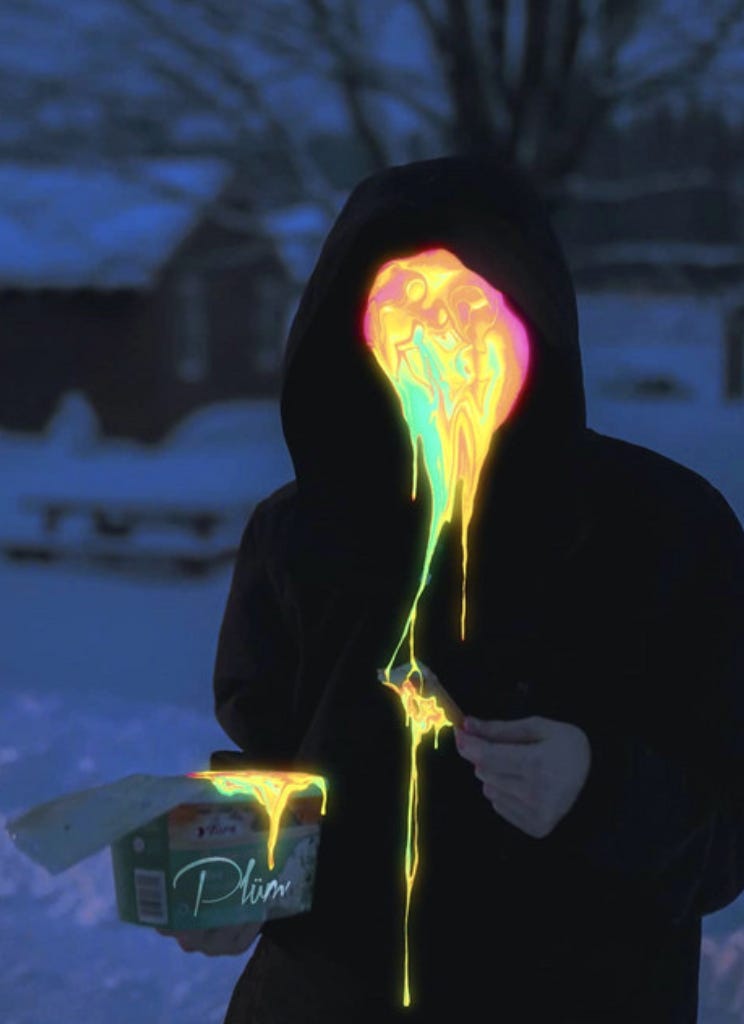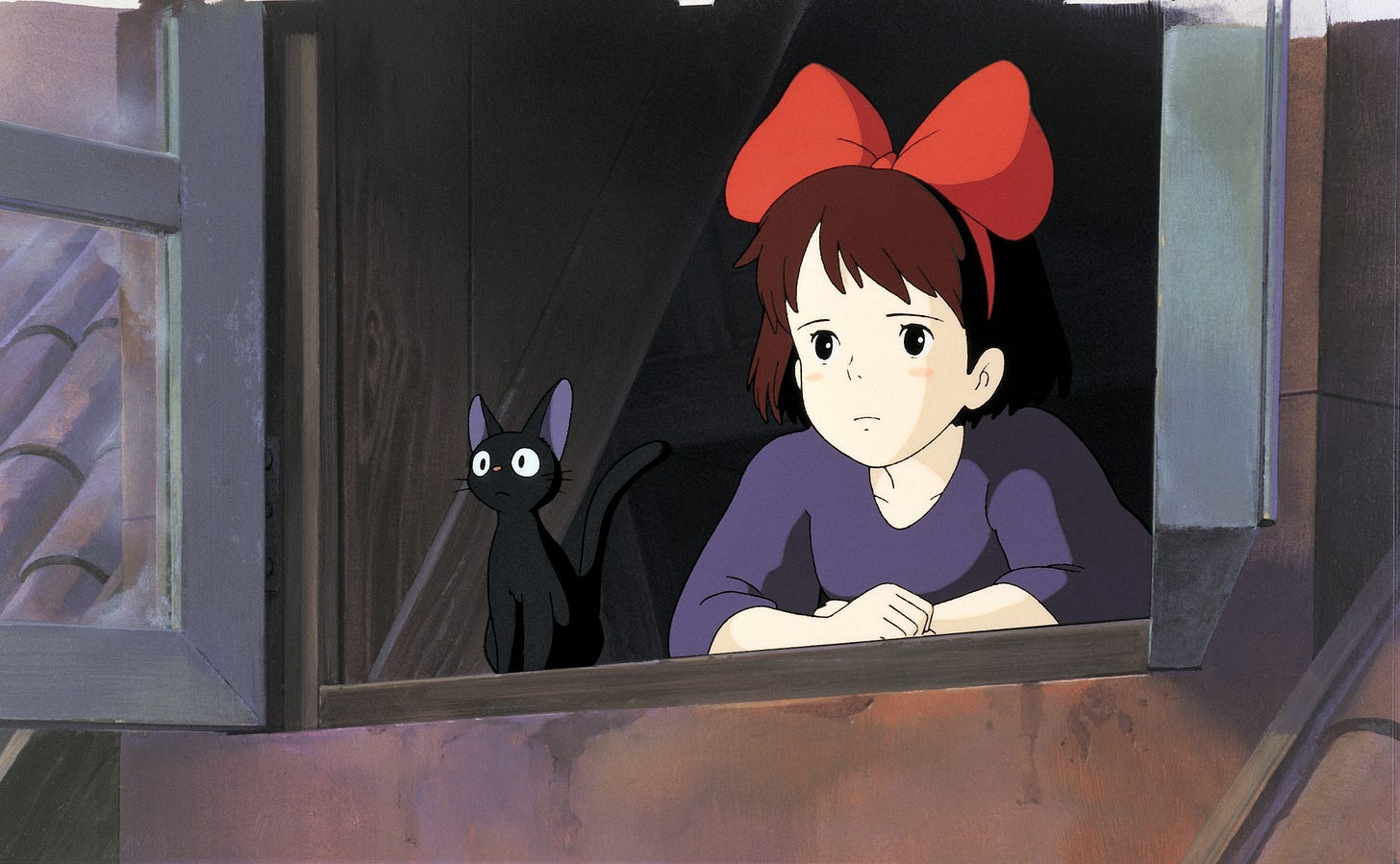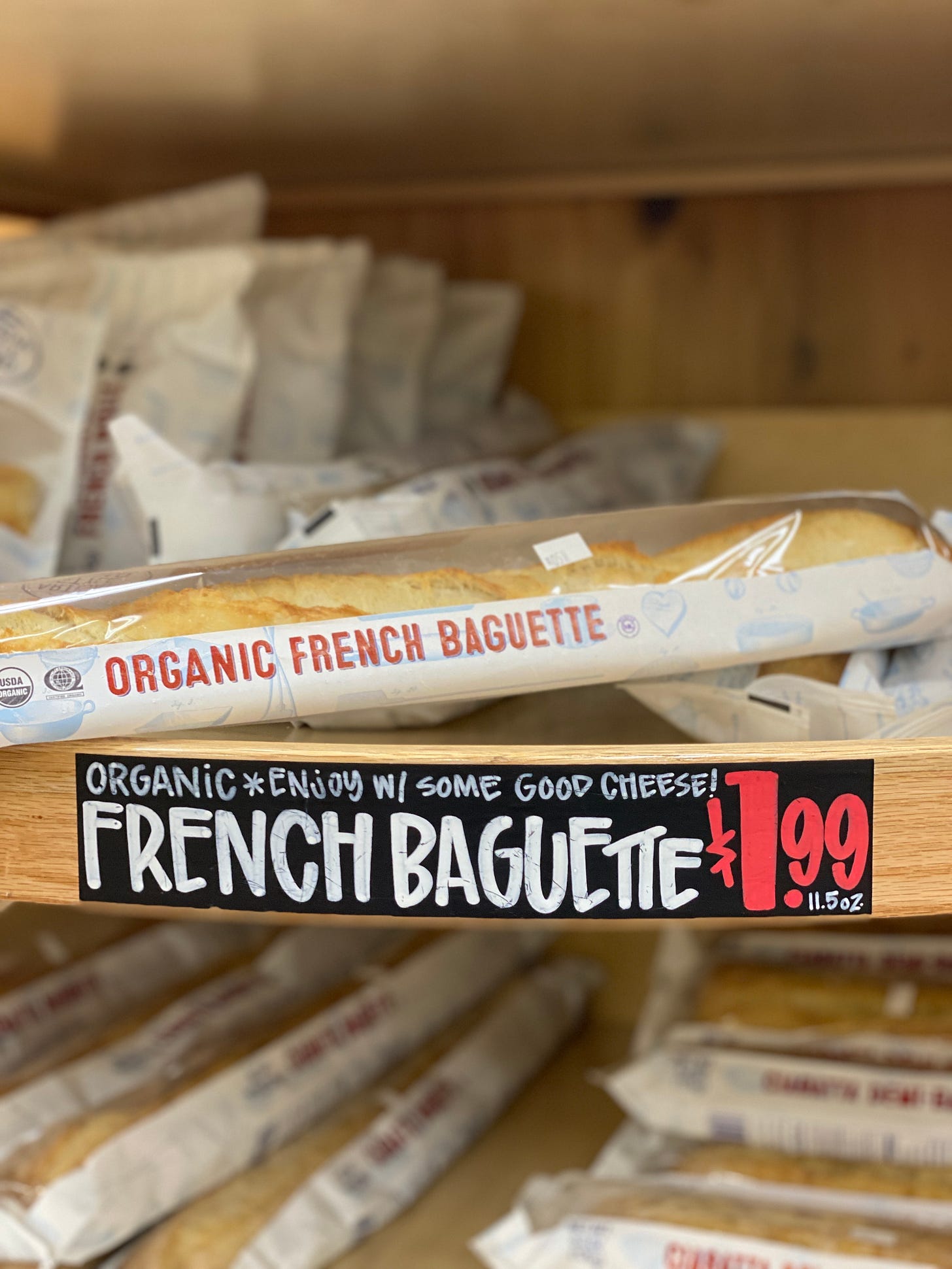#3. No One Is Talking About This
Thoughts on the current state of social media inspired by Patricia Lockwood’s 2021 novel
Commentary about social media has been following me everywhere. For some reason, I can’t seem to escape it. On a recent FaceTime with my best friend a few weeks ago, I learned she had her first sort of “viral” moment on TikTok in November–a few seconds of Taylor Swift on stage, shot at a concert years ago with an ABBA song overlaid on it, accompanied by the caption: “Omg I can’t believe I just found this unearthed Taylor Swift performance from the Reputation tour.” It had over 70K views (huge considering her 643 total followers, vs. the 31K she has on Instagram) and I, her best friend, was not one of them.
Obviously this kind of content is taylor-made (sorry) for me, but it was posted on a platform I log into once a month, scroll around for a bit trying to build my algorithm, and then leave shortly after when I get sensory overload. I honestly felt guilty for not seeing it or congratulating her in real time, which feels stupid… but also very important???
The problem is that I have a very hard time with TikTok. I don’t usually feel behind the times, but I guess this is evidence that maybe I’m truly, indisputably getting old(er). Another friend of mine recently told me about the latest Taylor Swift conspiracy theory–that she is the poet June Bates; author of a self-published collection of poems called The Lavender Haze–that I somehow hadn’t heard of yet. Of course, she found out about it on TikTok.
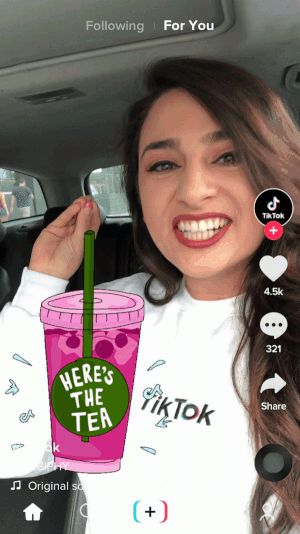
I’ve tried to get into the clock app so many times, but it’s not really something I enjoy using, and I guess I’m a bit disappointed / disturbed / fatigued by the current slate of offerings in the social media landscape. Maybe this makes me sound like a Boomer lol, but based on the number of think pieces and critiques of social media I’ve read recently, I know it’s not just me.
As if I needed further proof, there’s even a full page condemnation of social media from the protagonist of the fictional novel I just finished this weekend, who is 18 years-old and says she is “too weak for it.” The author of the book is a 30-year old woman who won The National Book Award for fiction last year, and the only social media she lists on her website is her Instagram profile, where she has 3,240 followers. This surprised me at first, until I read page 177 of The Rabbit Hutch. Then I understood completely.
“The Portal”
I sat down to start writing this newsletter a few weeks ago after closing the last page of No One Is Talking About This by Patricia Lockwood and then reading three in-depth reviews of it online to help process my many feelings. I attempted to follow the author on Instagram, but alas, apparently she’s only on Twitter (which I gave up on circa 2014). Published in February 2021, Lockwood’s first novel explores “the portal” (AKA social media, but even more specifically: Twitter) through the lens of a person who achieved internet fame for originating a shockingly simple post that made her famous: ‘Can a dog be twins?’ If that sounds absurd… yes. It is. The book is a commentary on the addictive, strange, and stupid nature of the internet and the ways in which it has changed us all as human beings.
Although No One Is Talking About This lacks any kind of recognizable plot in its first half (similar to social media itself, I suppose?) and perhaps reads more like a book of poetry that is often very funny but becomes plodding rather quickly, the second half explodes into a heartfelt, true(?) story about the author’s younger sister and her baby, who was apparently the first person to ever be diagnosed with Proteus Syndrome in utero.
I didn’t cry, but I was very moved by the second half; especially the way Lockwood addressed abortion rights. There is a lot of political commentary–I had to stop and look up the date of publication to confirm that yes, Lockwood wrote this before the overturning of Roe v. Wade–which all feels a little creepily prescient and extremely relevant, especially if you’re a woman living in the United States right now.
She refers to former President Trump only as “The Dictator,” and in a book where it is nearly impossible to have a favorite quote because the entirety of its 208 pages is just line after line of witty and intellectual prose, there were two that stood out to me in particular:
“Every day we were seeing new evidence that suggested it was the portal that had allowed the dictator to rise to power. This was humiliating. It would be like discovering that the Vietnam War was secretly caused by ham radios, or that Napoleon was operating exclusively on the advice of a parrot named Brian.”
“Previously these communities were imposed on us, along with their mental weather. Now we chose them—or believed that we did. A person might join a site to look at pictures of her nephew and five years later believe in a flat earth.”
Other than immediately falling in love with the author, it’s thoughts like these that come to mind reading No One Is Talking About This. We’ve all thought about this question a lot over the past few years, but it’s feeling very relevant again: Is social media doing considerably more harm than good? Is social media, which once felt very “contained” online, now bleeding through into our real lives in a way we never anticipated? We wanted (and even craved) community, connection, inspiration, and education from social media, at its beginning, but did we unknowingly get a faster way for misinformation to spread and people to become radicalized, depressed, lonely, or hateful as well? The answer is probably yes. So for those of us who still like and use social media (myself included)–where exactly does that leave us?
I feel a little regret that Lockwood didn’t get to comment on Elon Musk’s takeover of Twitter in her novel, because I’m sure it would have been gold. Along with Instagram’s desperate attempts to copy TikTok and the rise in popularity of an app that bills itself as sort of the anti-Instagram (which I do not use, but the app’s name quite literally tells us all to “be real”– a nod to the overly curated and ad-heavy experience that is the current iteration of Instagram), social media is feeling like a punchline these days. Keeping up with its evolution is a little exhausting. And I have no idea what is going to happen next.
There are so many other topics I could cover that were sparked by No One Is Talking About This; the absurd and somewhat uninspiring state of social media is just the most obvious. Its 208 pages somehow have a lot packed into them.
Although it’s not a book that will make my all-time favorites list, I do still recommend reading No One Is Talking About This. Read the first half slowly and patiently, like you would poetry, or skim it very quickly until part two, just over halfway in. Part two is genius, fast-paced, and sad, always a winning combo in my book.
Of course it’s probably not a coincidence that the second half, which is a tender, compelling story with a plot set in the offline world, is the better read. The first half of the book has no direction, and all of its endless paragraphs are unrelated (though beautiful), like social media itself. An interesting reflection upon finishing was that I strongly prefer the real world… yet remain extremely online. Or perhaps I have just discovered the reason why I never really liked Twitter; because it always presented less opportunity for real storytelling. Something I have continued to ponder further even weeks later.
Everyone is mad at Instagram
Something weird is going on with social media right now. I know I’m not the only one who feels it. I’ve worked in marketing since before Instagram launched (yow) and I’ve talked to several other marketers and other random people recently, and we all agree: this year was strange. Change is afoot.
There is a slightly uncomfortable vibe on Instagram right now. Deep beneath the beautiful surface, many content creators are burnt out or displeased with the platform, and to varying degrees, we are starting to be able to tell. You’ve probably seen at least one creator you like dial way back on Instagram recently in favor of other avenues like consulting, launching newsletters, creating new product lines, or leaving the industry altogether. Regular users are complaining that Instagram has morphed into a platform where all we see these days are Reels, ads, and “suggested content” from people we don’t follow. Meta (owner of Instagram and Facebook) stock is crashing and the company laid off 11,000 people in 2022.
Right now, in my brain the landscape looks a little something like this:
Facebook is where our parents get their conspiracy theories and fake news
Snapchat is somehow still around (but is also now just for Gen Z who have taken over and gamified the experience?)
Everybody is mad at Instagram
BeReal is trying to connect us with our real friends that we don’t see anymore on Instagram
Reddit is toxic
Substack is the new Tumblr
People are mass-exiting from Twitter after Elon (who actively sucks) took over
LinkedIn is absolutely unhinged
Pinterest is cool again, but we use it kind of in secret
YouTube is apparently still churning out unbelievably successful celebrities like Emma Chamberlin that I have never heard of until their mansions are featured on Arch Digest
TikTok is the Current Big Thing, but it’s become the most addictive platform yet; feeding the demise of people’s attention spans (also–TikTok ads are here, and they’re just getting started)
Is there a good option right now, genuinely? Does anyone love any of these platforms? Is this really the beginning of the end of social media? (For what it’s worth, I still like Pinterest, Instagram, and obviously Substack, just to varying degrees. And no judgment if you use any of these platforms!!!! I literally stopped checking Facebook every day sometime in 2022 and I am not even “friends” with my fiancé on that platform, lol. It was long overdue.)
‘Social networks’ vs. ‘social media’

I gifted myself a subscription to The Atlantic recently, and a piece I read shortly after gaining access was “The Age of Social Media Is Ending” by Ian Bogost. Although I’m not sure I agree with it entirely, there are some really interesting ideas and reminders of how social media began buried in its otherwise overtly negative and extremist paragraphs (Bogost’s main point is that social media was “a terrible idea” from the outset, and we should all play a small part in helping abandon it). The biggest takeaway for me was an exploration into the difference between ‘social networks’ and ‘social media,’ and what happened when one evolved into the other:
“The terms social network and social media are used interchangeably now, but they shouldn’t be. A social network is an idle, inactive system—a Rolodex of contacts, a notebook of sales targets, a yearbook of possible soul mates. But social media is active—hyperactive, really—spewing material across those networks instead of leaving them alone until needed.
Instagram, launched in 2010, might have built the bridge between the social-network era and the age of social media. It relied on the connections among users as a mechanism to distribute content as a primary activity. But soon enough, all social networks became social media first and foremost.
In their latest phase, their social-networking aspects have been pushed deep into the background. Although you can connect the app to your contacts and follow specific users, on TikTok, you are more likely to simply plug into a continuous flow of video content that has oozed to the surface via algorithm. You still have to connect with other users to use some of these services’ features. But connection as a primary purpose has declined. Think of the change like this: In the social-networking era, the connections were essential, driving both content creation and consumption. But the social-media era seeks the thinnest, most soluble connections possible, just enough to allow the content to flow.”
In essence, the author attests that ‘social networking’ was all about connection, whereas ‘social media’ is about broadcasting. My best friend just told me exactly what Bogost said about TikTok–you’re less likely to “follow” specific people, instead consuming what the algorithm serves to you based on your interests–which feels like the least similar to a ‘social network’ of all the most popular platforms yet.

If you’ve ever heard anyone say that social media feels like “screaming into a void,” it’s this one-way broadcasting element of social media that people are talking about. Users are rebelling against Instagram right now because it felt like, for a while at least, a place you could go to connect with others and broadcast to them. Maybe, for some of us, it still is. It makes sense to me why even people with as many followers as Kylie Jenner were complaining about not being able to see their friends’ content this summer–that’s the “networking” part of these larger platforms that we like and miss.

So I guess my question is: Why are people flocking in droves to TikTok (there are over 1 billion TikTok users already worldwide) when it’s almost all “broadcast,” and very little “connection?” If the early days of Facebook–circa the mid-aughts when you still had to have a university email address to gain access–represents the more extreme end of the scale on the networking/connection side, and TikTok represents the most extreme end we’ve seen on the side of media/broadcasting (yet), what’s next? And what do we actually want?
Will TikTok eventually take over as the platform with the most users worldwide? Will the scale push even farther until it births a new broadcast-only platform that eventually usurps both Instagram and TikTok? Will we self-correct and swing back towards something more in the middle of the scale, like Instagram in the early 2010s? Will up-and-coming community based chat apps like Geneva, Discord, or Telegram eventually take over and push us all the way back towards the end of the scale focused on connection and actual networking? And just as importantly… who gets to decide?
I guess the answer is that only time will tell. Personally, I’ve been thinking a lot about how to push this newsletter more in the direction of connection because that’s where I feel the most fulfilled. When I launched my virtual book club in early December, I hitched my wagon to Geneva. I’ve only been using it for about a month, but so far I like it. It’s casual, not at all curated, and feels like the opposite of shouting into the void. We’ll see if it sticks.
Thanks for reading! Now on to the picks of the week…
What’s Up This Week

Arte Latino Cava Brut
Archetype: That reserved, yet always interesting, introverted friend of yours
Composition: Cava
Availability: Admittedly quite limited. See if you can find it online. If you’re in Minneapolis/St.Paul, we get it at First Grand Avenue Liquor Store in St. Paul.
MSRP: $12ish
Worth it: Truly one of the greatest values in the world of wine I have ever found
Discovered: At a crappy liquor store on Grand Avenue in St. Paul, on the bottom shelf where all the shit is. A true diamond in the rough. A diamond amongst turds.
Appearance: Light straw, irregular mousse (bubbles)
Nose: Medium intensity with notes of river rocks, powdered sugar on the top of a lemon bar, candied grapefruit peel, and lightly toasted bread.
Palate: Goodness gracious, you would pit this against any $30+ Champagne. This wine is an overachiever. It’s that kid who was chosen last for kickball, and ended up winning the game for their team. It’s not a star, it’s not a standout, it’s not an award-winner–it’s just a screaming value that flies under the radar. The palate shows notes of salty sea shore, intense minerality, hay loft, limestone cave, and a bit of lemon curd.
Conclusions: This wine is your reliable friend who is there for you in both good times and bad. It’s a modest wine with no ego. Spray it all over your friends at a party, throw gummy bears in it, bathe in it, or serve it at your wedding. It’s the perfect wine to drink seriously or not-so-seriously and be completely happy due to the unbelievable price point. Serve it blind to your most discerning guests and to your friends who don’t drink a lot of wine–it will be equally delicious to all. Just be sure to pop the cork 30 minutes ahead of time and let this baby breathe!
Tip: If you aren’t going to finish it, have a spare red or white wine cork ready to shove back in the bottle and this fucker will be sparkling for up to three days in your fridge.
I just finished The Rabbit Hutch by Tess Gunty, and my local book club was supposed to meet tonight to discuss, but it’s snowily so heavily here I think we’re going to reschedule! Whomp. I will absolutely write more about this book at length because it was super weird, unusual, and interesting. I gave it an 8/10, and I can’t wait to hear what the rest of the book club has to say about it.
If you’ve read The Rabbit Hutch and want to join my virtual book club session to chat about it, join the group! We’re on Geneva! We’re supposed to meet tomorrow night at 7:30pm CT, but I might reschedule to after our IRL meeting. I’ll let you all know! :)
My song of the week is “To Stay”, a bangin’ cover of Rhianna’s “Stay” by a French producer, PLÜM, who apparently hides his face a la Sia or Deadmau5. He “breaks free from all rules and produces whatever he wants;” songs that I imagine you’ll like if you enjoy music you might find at Coachella. Here he is:
So we finally have a villain of Emily in Paris. I hate to say it, but I’m kind of excited to see what happens in Season 4! Lol.
Paul and I watched Kiki’s Delivery Service this weekend, and why did I cry at such a cute story??!!? We are slowly working our way through all the Studio Ghibli films available on HBO Max, and gosh. This one was just really fucking sweet.
Kiki’s Delivery Service is about a 13 year-old witch who has to spend a year away from home in “training” and her difficulties adjusting to a new town where not everyone is super friendly, but some people she meets along the way are super kind to her and make all the difference. Kiki loses her ability to fly on her broom around halfway through the film, and has to really focus on slowing down and finding her purpose in order to fly again. GOSH HOW RELATABLE OKAY FINE!!! Kiki is voiced in the English version by a 16 year-old Kirsten Dunst, and I loved her so much.
Much to the horror of many of my best friends, I’m really not that hyped about bread. During the pandemic, I felt like literally the only person without a sourdough starter. Bread is totally fine, and often pretty good, but not something I’d ever think to write home about.
Well, here I am telling you how good the French baguette from Trader Joe’s is. Sometimes the best things in life are carbs for $1.99. Much like our wine of the week, this baguette is a true overachiever. Lightly toasted with some butter and a pinch of Fleur de sel, this delight in a bag is really quite something. I may be the last person to discover it, but in case I’m not, do yourself a favor and go get one of these next time you’re at TJ’s.
That’s it for me! See you next week.
K bye,
Kelly





